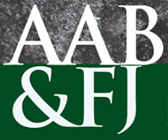Abstract
The tasks and skills that are required of accounting practitioners in today’s global business environment have changed significantly since the early 1990s. No longer are accounting practitioners required merely to undertake the tasks necessary for information provision, such as bookkeeping, data analysis and tax preparation. Instead, they are now in a more encompassing position which has extended their roles into information facilitation, thus repositioning accountants as knowledge professionals rather than accounting technicians. This in turn suggests a need for a greater emphasis on incorporating components of emotional intelligence in accounting education. However, as accounting students are generally not aware of this expanded role, those who are attracted into accounting courses may not possess the appropriate aptitude that would provide a good foundation for developing the skills now required in the professional accounting environment. Therefore, it is important that the teaching of accounting should incorporate strategies that enable students to understand and the need for developing these necessary, but often missing, competencies. This paper reports on two independent studies conducted at an Australian university which suggest that incorporating emotional intelligence skills into the education of accounting students, by providing a variety of learning environments and tasks, may be beneficial to accounting graduates as they seek employment.
How to Cite:
Jones, G. & Abraham, A., (2009) “The Value of Incorporating Emotional Intelligence Skills in the Education of Accounting Students”, Australasian Accounting, Business and Finance Journal 3(2).
Downloads:
Download PDF
304 Views
4352 Downloads

